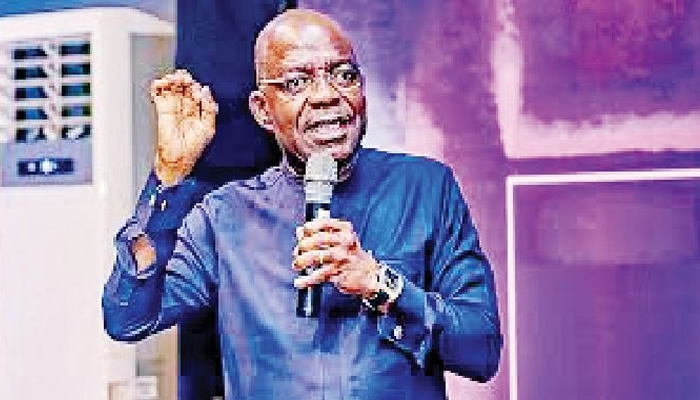Abia State Governor Alex Otti recently addressed the state of the Labour Party during his monthly media chat in Umuahia, confirming his ongoing commitment to the party while acknowledging the challenges that have influenced his supporters to explore other political affiliations ahead of local government elections. Despite the internal discord within the Labour Party (LP), which culminated in a court ruling reinstating Julius Abure as the party’s national chairman, Otti affirmed his allegiance. However, he expressed understanding and support for his followers who have chosen to join other parties, as he indicated that the circumstances have compelled many to seek alternatives amidst the uncertainties.
Otti’s narrative on the political landscape reflects the turmoil faced by the LP, especially due to its ongoing factional conflicts. While he remains a member of the LP, he has authorized his supporters to align with parties they find more viable for the upcoming local government elections, demonstrating a pragmatic approach to the political realities on the ground. The governor’s stance comes in the wake of the LP’s failure to field candidates in the local government elections, a strategic move that has raised eyebrows and sparked speculation about Otti’s long-term ambitions within the party.
The recent local government elections saw significant victories for opposition parties, with the Zenith Labour Party (ZLP) winning 15 local government areas, and the Young Peoples Party (YPP) securing two councils. This outcome has further fueled rumors regarding Otti’s potential defection to the ZLP, given its apparent popularity during the elections. Nevertheless, Otti dismissed these rumors, reiterating his commitment to the Labour Party and insisting that his current affiliations would remain unchanged unless decisive reasons necessitate a departure.
Among other significant points made, Otti reflected on the nature of political affiliations, emphasizing that parties often serve merely as platforms, and that the essence of political success lies in the individual candidates rather than party labels. He likened this perspective to past experiences in his political career, recalling how, after leaving the People’s Democratic Party (PDP) to join the All Progressives Grand Alliance (APGA), he managed substantial electoral success despite the new party’s initial obscurity. His comments underline a growing awareness among the electorate regarding the efficacy and reliability of their political leaders, rather than the party structures themselves.
Moreover, Otti’s admission that the ongoing crises within the LP have prompted many of his supporters to gravitate towards other parties sheds light on the broader challenges of party unity and loyalty in the Nigerian political arena. His reflections indicate an understanding that political allegiance can be fluid, driven largely by individual experiences with leadership efficacy and the desire for effective governance. This sentiment resonates greatly with voters who prioritize candidates capable of delivering results over traditional party loyalty.
In conclusion, while Governor Alex Otti continues to assert his loyalty to the Labour Party, his pragmatic approach to the dynamics of political affiliation amidst a factionalized environment marks a significant moment in Nigerian politics. As he allows his supporters the freedom to choose their political homes, Otti underscores the importance of individual leadership, accountability, and the evolving nature of political alliances in a landscape where party loyalty is increasingly challenged by the quest for effective governance. Future political developments in Abia State will undoubtedly hinge on how these relationships evolve and whether Otti’s commitment to the LP can withstand the pressures exerted by a highly competitive political climate.














